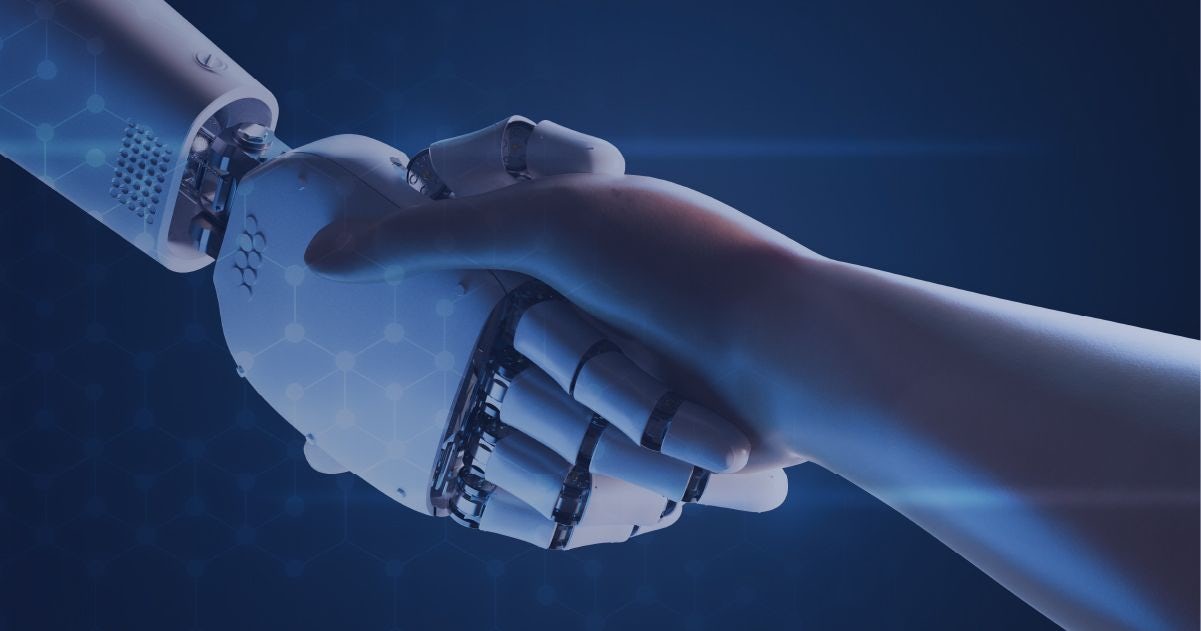Businesses that do not update their systems will quickly fall behind as technology advances. However, with a little forethought, you can ensure that your company is well-positioned as the Fourth Industrial Revolution unfolds.
What exactly is the Fourth Industrial Revolution (4IR), and what does it mean for your business? Let's reflect on previous industrial revolutions and the influence of new technologies – especially digital ones – on our lives.
Table of contents:
- The progress moves within its own timeline
- What can you do to prepare your business for the Fourth Industrial Revolution?
- The Fourth Industrial revolution: advantages and disadvantages
- The future of working
- Conclusion
The progress moves within its own timeline
While many of us think of the Industrial Revolution as a single historical event, human history has endured several stages of technological development over the last few centuries. Each Industrial Revolution, as you may recall from your school years, refers to changes and shifts in how the global population works, lives, and connects through the adoption of life-changing technological innovation.
The first Industrial Revolution allowed us to advance through the widespread use of steam power to run mechanical production. Around 100 years later, we’ve added electricity to the mix. With the introduction of computers and computing power, the – still ongoing – Third Industrial Revolution (3IR) began, resulting in dramatic increases in productivity and efficiency.
The Fourth Industrial Revolution is widely assumed to have an impact on the workforce, offering various solutions to take over (or automate) simple, repetitive tasks. To support mass production (and simplify our lives), systems gained the ability to learn the process rules, combining that with the extraordinarily short reaction time, nonexistential susceptibility to tired-related errors, and durability that far outlasts human capabilities.
All of the above is already happening. Some of us are already living in semi-smart cities, equipped with a network of sensors connecting everything from (smart) refrigerators and traffic lights to autonomous vehicles and self-checkout shops. Automating data systems, using Siri on a smartwatch, 3D printing organs, using digital currency, and playing virtual reality games in your living room are also examples of ongoing 4IR.
The next big step – cognitive automation – will use advanced technology to complete complex information-based tasks (by interconnecting, i.e., artificial intelligence, machine learning, the Internet of Things, and cyber-physical systems). Technology is already in the process of making a revolutionary change from a mindless, mechanical “worker” into a sentimental part of the organization, equipped with data-fed algorithms capable of acting as advisors to decision-makers. Once that breakthrough is reached, smart technology will enter our workplaces as connected devices learn to visualize and interact with the manufacturing chain, fully automating decision-making.
The transition to more complex functions will thus define the 4IR, allowing businesses to advance in leaps and bounds.
What can you do to prepare your business for the Fourth Industrial Revolution?
1. Focus on data collection (and security)
With the shift from analog to digital, the amount of data and information on the internet has grown. To fully realize the benefits of smart technologies, you must be able to collect all of that data, analyze it for insights, and act on it. Ensure that your datasets are securely stored and that all data mining devices are securely connected to your chosen cloud provider(s). We recommend looking into hybrid- and multi-cloud solutions (for example, in our Cloud Migration report).
2. Introduce automation
Examine your company's processes and create an automation roadmap to transition to the Fourth Industrial Revolution smoothly. Begin with solutions that will add the most value behind the scenes, such as automating billing, payroll, delivery, or attendance monitoring. Then improve connectivity, as any company that does not combine smart devices with automation is likely to fall behind. Each small step you take now will put you a mile ahead of your competition when they begin to adjust to the changing market. That is also why investing in technology during a recession pays off.
3. Prepare your teams
Although 4IR is mainly about providing a digital workforce to your business, its innovation will serve you best only if you make sure your teams know how to use them. Each tool that will affect the day-to-day workflows of a specific group of employees should be introduced with an in-depth training session to demonstrate the value of the new technology to relevant personnel. Assure your team that the solution will not replace them and that the adoption will help them gain new, future-oriented skills.
4. Keep up with the latest trends
Businesses must consider their role in a data-driven, hyper-connected world. The increasing usage of quantum computing promotes innovation shaping, bringing connectivity to a new level of sophistication. We will soon see the convergence of data collection and processing, resulting in the self-communication of smart devices – allowing them to assist us in our daily activities. On a business level, this means that more data is being used to improve AI and ML algorithms, allowing proper adjustments to be made without human intervention. Accepting and adapting to change is a professional's most valuable asset. Focusing on training and skills that will help employees with adaptability, critical thinking, and flexibility in the future workplace is critical for a smooth transition.
5. Consider early adoption an investment
Conduct a thorough study (or hire a technology advisor to do so) of your needs and potential areas of development before selecting the right technology. Remember that cutting-edge technology isn't always necessary, especially if you're unsure whether the solution is right for you. Task-oriented solutions, such as robotics or (selected) process automation, can typically be used for 5-7 years, with the difference between iterations being the more refined design. However, more universal solutions (such as artificial intelligence or virtual reality) are constantly progressing, with significant year-to-year differences. Each version can differ significantly from its predecessor, allowing for different approaches to be explored.
The Fourth Industrial Revolution: advantages and disadvantages
We live in unprecedented times, and not just in terms of technological progress. The COVID-19 pandemic and subsequent recession continue to have a significant impact on businesses in all industries. Lockdowns and quarantines hastened the fourth industrial revolution by driving people online.
As a result, businesses must adapt to the new reality now more than ever. The solution, 4IR's technological advancements, has enormous potential but also enormous risks.
Communication between connected devices has the potential to improve business processes, workplace automation, and efficiency by offloading some of your employees' workload. This also translates to better mental health and, as a result, higher life quality and company income by ensuring the highest production rates and lowest risks possible. Data-driven businesses are also less vulnerable to cybersecurity incidents and can respond more quickly if one occurs. As a result, they have improved disaster preparedness.
On the other hand, we face the issue of many skills and jobs that may become obsolete in the not-too-distant future. This could be a problem for long-term employees, who may face social tension and a new, more segregated job market with greater income disparity. Another problem is the lack of regulation for our security in an increasingly connected world. The innovation may also shift to a more process-oriented approach, replacing the question of "how can we make lives better?" with "what can we do to achieve better results?" thus losing the spark of ideation.
The future of working
One of the most frequently expressed concerns about the upcoming Industrial Revolution is the reduction in the number of job openings. AI-powered robots are claimed to disrupt labor markets, as they are feared to replace everyone doing everything, putting entire regions in poverty. As a matter of fact, drones and robots are superior at performing physical, predictable tasks quickly, efficiently, and safely. They can manufacture, operate, and deliver and have the patience to deal with repetitive questions 24 hours a day. They are also thought to replace HR administrative workers due to their filtration abilities combined with complete impartiality.
On the other hand, machines still lack social and cognitive abilities, ruling out automation for most jobs requiring creativity, empathy, complex reasoning, or cultural sensitivity. On the plus side, according to the World Economic Forum study, 38% of businesses believe AI and automation technology will enable employees to perform new productivity-enhancing jobs, while over 25% believe automation will cause the emergence of new roles.
Conclusion
We approach changes with caution, particularly those related to technology. Smartphones (and smart components in mobile devices), social platforms at the time, and self-learning chatbots/image generators or extended reality are now portrayed in terms of their (usually alarmingly negative) impact on society – particularly children. While such innovation requires critical, objective thinking, we must also balance the risks with the potential offered by the solution.
According to Statista mobile phone internet usage accounted for 59% of global internet traffic in 2022 – taking an enormous leap from 6% in 2011. The popularity of mobile devices and the opportunities for growth (both professionally and personally) provided by web-based networks were the driving forces behind the blooming of the mobile-first markets in Africa and Asia. Moving on to current innovations, sensors can now monitor and control environmental conditions such as temperature, humidity, and sun exposure. And Virtual Reality and Augmented Reality are already used to hold meetings, train employees, and have fun.
In fact, the flagship innovations for each Industrial Revolution can push societies into better living conditions. Therefore, they directly drive economic growth.
This is also true for businesses that can grow and thrive by leveraging new, innovative developments to increase productivity, efficiency, and profitability. To do so, they must keep an open mind and see the opportunities hidden behind the already-identified risks. It is always best to adopt early, but rather than diving headfirst into the unknown, we recommend adjusting the new technology piece by piece to maximize the usability of the solutions.
If you’d like to test out emerging technology in your company, update your knowledge of upcoming technological black horses for your industry, or estimate the automation roadmap tailored to your business potential, leave us a message or learn more about our IT Consulting services >

